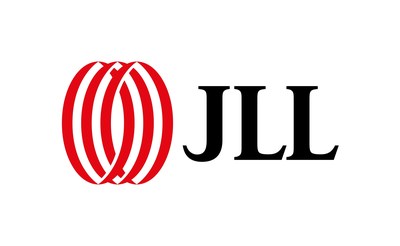Real estate's AI reality check: 90% of companies piloting, only 5% achieved all AI goals
JLL (JLL) released its 2025 Global Real Estate Technology Survey of 1,500+ CRE decision‑makers across 16 markets, finding rapid AI uptake but low program maturity.
Key findings: 88% of investors/owners are piloting AI, 92% of occupiers run pilots, only 5% achieved all AI goals, and 47% met two‑to‑three goals. 87% say real estate tech budgets rose because of AI and most firms pursue an average of five AI use cases. JLL warns organizational readiness—data, infrastructure and change management—remains the main barrier to scaling AI, and that inaction risks competitive loss over the next three to five years.
JLL (JLL) ha pubblicato il 2025 Global Real Estate Technology Survey su oltre 1.500 decision maker CRE in 16 mercati, rilevando un rapido utilizzo dell'IA ma una maturità limitata dei programmi.
Principali risultati: 88% degli investitori/proprietari sta pilotando l'IA, 92% degli occupanti esegue progetti pilota, solo 5% ha raggiunto tutti gli obiettivi IA, e 47% ha raggiunto due-tre obiettivi. 87% afferma che i budget tecnologici immobiliari sono aumentati grazie all'IA e la maggior parte delle aziende persegue in media cinque casi d'uso IA. JLL avverte che la preparazione organizzativa—dati, infrastrutture e gestione del cambiamento—rimane la principale barriera per scalare l'IA, e che l'inazione comporta rischi di perdita competitiva nei prossimi tre-cinque anni.
JLL (JLL) publicó su Encuesta Global de Tecnología Inmobiliaria 2025, de 1.500+ decisores de CRE en 16 mercados, encontrando una rápida adopción de IA pero una madurez de programa baja.
Hallazgos clave: 88% de inversores/propietarios están probando IA, 92% de los ocupantes realizan pilotos, solo 5% lograron todos los objetivos de IA, y 47% alcanzaron de dos a tres objetivos. 87% dicen que los presupuestos de tecnología inmobiliaria aumentaron gracias a la IA y la mayoría de las empresas persiguen en promedio cinco casos de uso de IA. JLL advierte que la preparación organizativa—datos, infraestructura y gestión del cambio—sigue siendo la principal barrera para escalar IA, y que la inacción implica riesgo de pérdida competitiva en los próximos tres a cinco años.
JLL (JLL)은 16개 시장에 걸친 1,500명 이상의 CRE 의사결정자들을 대상으로 한 2025년 글로벌 부동산 기술 설문조사를 발표했으며, 빠른 AI 채택과 낮은 프로그램 성숙도를 발견했습니다.
주요 발견: 88%의 투자자/소유자는 AI를 파일럿하고, 92%의 점유자는 파일럿을 운영하며, AI 목표를 모두 달성한 것은 5%에 불가하며, 47%는 두세 가지 목표를 달성했습니다. 87%가 부동산 기술 예산이 AI로 인상되었다고 말하며, 대부분의 기업은 평균 다섯 개의 AI 활용 사례를 추구합니다. JLL은 데이터, 인프라 및 변화 관리 등 조직 준비가 AI 확장의 주요 장애물로 남아 있으며, 적극적이지 않으면 향후 3~5년 내에 경쟁에서 뒤처질 위험이 있음을 경고합니다.
JLL (JLL) a publié son enquête mondiale sur la technologie immobilière 2025, auprès de plus de 1 500 décideurs de CRE dans 16 marchés, révélant une adoption rapide de l'IA mais une maturité des programmes limitée.
Principales conclusions : 88% des investisseurs/propriétaires pilotent l'IA, 92% des occupants réalisent des projets pilotes, seulement 5% ont atteint tous les objectifs IA, et 47% ont atteint deux à trois objectifs. 87% estiment que les budgets technologiques immobiliers ont augmenté grâce à l'IA et la plupart des entreprises poursuivent en moyenne cinq cas d'utilisation de l'IA. JLL avertit que la préparation organisationnelle—données, infrastructure et gestion du changement—reste le principal frein à l'échelle de l'IA, et que l'inaction présente un risque de perte compétitive au cours des trois à cinq prochaines années.
JLL (JLL) veröffentlichte seine 2025 Global Real Estate Technology Survey mit über 1.500 CRE-Entscheidungsträgern in 16 Märkten, die eine schnelle AI‑Nutzung, aber eine geringe Programmreife feststellen.
Zentrale Erkenntnisse: 88% der Investoren/Eigentümer testen KI, 92% der Nutzer führen Pilotprojekte durch, nur 5% haben alle KI‑Ziele erreicht, und 47% haben zwei bis drei Ziele erreicht. 87% sagen, dass die Budgets für Immobilien-Technik aufgrund von KI gestiegen sind und die meisten Unternehmen streben im Durchschnitt fünf KI‑Use‑Cases an. JLL warnt, dass organisatorische Bereitschaft—Daten, Infrastruktur und Change Management—die Haupthürde für die Skalierung von KI bleibe, und dass Untätigkeit in den nächsten drei bis fünf Jahren ein Wettbewerbsverlust-Risiko darstelle.
JLL (JLL) أصدرت مسحها العالمي لتكنولوجيا العقارات لعام 2025 لقرارات CRE من 1,500+ عبر 16 سوقاً، مكتشفة اعتماداً سريعاً للذكاء الاصطناعي لكن نضج البرنامج منخفض.
النتائج الرئيسية: 88% من المستثمرين/المالكين يجربون الذكاء الاصطناعي، 92% من المستأجرين يشغلون تجارب، فقط 5% حققوا جميع أهداف الذكاء الاصطناعي، و 47% حققوا هدفين إلى ثلاثة أهداف. 87% يقولون أن ميزانيات تكنولوجيا العقارات زادت بسبب الذكاء الاصطناعي، وتتبنى معظم الشركات في المتوسط خمسة استخدامات للذكاء الاصطناعي. تحذر JLL من أن الاستعداد التنظيمي—البيانات، والبنية التحتية، وإدارة التغيير—لا يزال العائق الرئيسي لتوسيع الذكاء الاصطناعي، وأن عدم اتخاذ إجراء يعرضها لخسارة تنافسية خلال السنوات الثلاث إلى الخمس القادمة.
JLL (JLL) 发布了其2025年全球房地产科技调查,覆盖16个市场、1,500多名CRE决策者,发现AI采用迅速但方案成熟度低。
关键发现:88%的投资者/所有者正在试点AI,92%的使用者运行试点,只有5%实现了所有AI目标,47%达成了两到三个目标。87%表示房地产科技预算因AI而上升,大多数公司平均追求五个AI用例。JLL警告,组织就绪度——数据、基础设施与变革管理——仍是扩大AI的主要障碍,若不采取行动,未来三到五年将面临竞争劣势。
- 88% of investors, owners and landlords piloting AI
- 92% of occupiers running AI pilots
- 87% report real estate tech budgets increased because of AI
- Average of five AI use cases pursued per organization
- 47% achieved two–three program goals
- Only 5% of companies achieved all AI program goals
- Majority of initiatives remain experimental with limited scaling
- Over 60% of investors unprepared strategically or technically
- Organizational readiness gaps in data, infrastructure and change management
Insights
Survey shows broad AI pilots but low program completion; leaders invest in data, roadmaps and change management.
JLL’s survey of 1,500+ CRE decision‑makers reports widespread piloting: 88% of investors and 92% of occupiers run AI pilots, with organizations pursuing an average of five use cases and identifying 56 distinct applications across the value chain. Despite adoption, only
Business impact depends on foundational readiness: quality data, infrastructure and change‑management. The most successful groups create tailored technology roadmaps, invest in data platforms and embed AI into workflows. The survey also reports
Watch execution milestones over the next three years and by
JLL's research reveals despite near-universal AI adoption, significant gaps remain in driving business impact
Despite economic headwinds, more than half of investors have achieved considerable technology budget growth over the past two years. Strategic advisory on technology or AI is investors' number one commercial real estate (CRE) tech budget priority for the next two years and
"We're seeing a definite shift as our clients are reimagining the possibilities of AI and focusing more on generating long-term value over quick, operational wins," said Yao Morin, Chief Technology Officer, JLL. "A strong data platform is critical for growth and the companies that prioritized building out their data platforms to gear up for more sophisticated AI applications will continue to pick up steam and lead the competition."
Rapid adoption but varied success rates
Over the last two years, the speed of AI adoption in real estate has been unprecedented. In July 2023, fewer than
While some companies have proactively embraced the technology, a considerable portion of CRE occupier teams have ended up implementing AI not by choice, but by C-suite mandate as they view AI adoption as a competitive necessity. Despite the significant percentage of CRE occupiers piloting AI, only
Why some companies are winning with AI
While adoption is widespread, maturity remains low. Between occupiers and investors, JLL Research identified 56 AI use cases across every aspect of the CRE value chain, from which both groups are pursuing an average of five pilot projects simultaneously. Historically, it was suggested that organizations should start with simple, low-risk applications; however, the survey data reveals a different approach emerging in CRE. Despite facing limited resources and uncertain outcomes, teams are prioritizing high-impact areas and rebalancing their AI priorities to directly address their most pressing business challenges.
The real challenge, and the reason why maturity remains low, lies in the readiness of an organization including whether they have quality data, infrastructure and the change‑management processes needed to integrate AI into core workflows. The most successful investors take a systematic approach to AI by developing tailored technology roadmaps, investing in quality data and infrastructure and embedding AI into core workflow, all widening the gap between leaders and laggards.
The window to act is closing
The opportunity to secure competitive advantage through AI is not indefinite. The CRE landscape will look different within the next three years and certainly by 2030.
The cost of inaction isn't just slower growth; it's potential loss of market relevance as the industry rewards tech-forward leaders. Yet more than
"Successful AI implementation begins with a clear, strategic vision that aligns technological capabilities to business objectives," said Sharad Rastogi, CEO, Work Dynamics Technology Group, JLL. "Execution of AI demands the right blend of internal expertise and external partnerships to upskill talent, embed governance structures and build ongoing capabilities."
The message is clear: act smart and act now. Companies that invest in foundational capabilities today will lead as AI reshapes the industry.
For more news, videos and research resources on JLL, please visit JLL's newsroom.
About JLL
For over 200 years, JLL (NYSE: JLL), a leading global commercial real estate and investment management company, has helped clients buy, build, occupy, manage and invest in a variety of commercial, industrial, hotel, residential and retail properties. A Fortune 500® company with annual revenue of
Contact: Allison Olp
Phone: +1 312 228 3128
Email: allison.olp@jll.com
![]() View original content to download multimedia:https://www.prnewswire.com/news-releases/real-estates-ai-reality-check-90-of-companies-piloting-only-5-achieved-all-ai-goals-302596732.html
View original content to download multimedia:https://www.prnewswire.com/news-releases/real-estates-ai-reality-check-90-of-companies-piloting-only-5-achieved-all-ai-goals-302596732.html
SOURCE JLL








